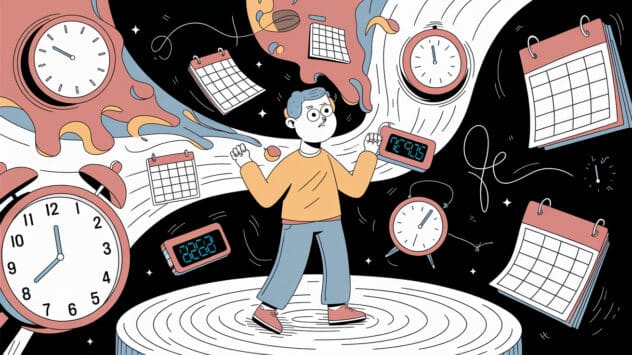CBD and Neurodivergence: A Helpful Tool or Just Hype?
CBD has taken over wellness conversations in the UK in the past few years. Whether it’s someone talking about it helping them sleep, easing their anxiety, or even supporting their ADHD brain, this cannabinoid is everywhere. And if you’re neurodivergent, autistic, ADHD, dyslexic, or somewhere on the spicy brain spectrum, you might be wondering if CBD and neurodivergence is a match and whether it’s worth trying or just another overpriced bottle of snake oil.
Let’s unpack what’s hype, what’s helpful, and what might actually work when it comes to CBD and neurodivergent brains.
What Actually Is CBD?
CBD (short for cannabidiol) is one of the better-known compounds found in the cannabis plant. It’s not the one that gets you high. That’s THC. CBD is the calm, legal cousin that interacts with your body’s endocannabinoid system, which regulates things like mood, appetite, sleep, pain, and stress.
Unlock peak brain performance with science-backed biohacks. Join free now & get your guide for just £4.99 (45% off)!

In the UK, CBD is legal as long as it contains less than 0.2 percent THC and is marketed as a food supplement. But don’t let the “supplement” label fool you. People are using it to manage everything from chronic pain to panic attacks.
Neurodivergence: Different Brains, Different Needs
Being neurodivergent means your brain processes information differently from what society calls “neurotypical.” Whether you’re autistic, ADHD, or otherwise, you might experience heightened anxiety, sensory overload, trouble sleeping, emotional rollercoasters, or all of the above.
CBD is often marketed as something that can support exactly those kinds of challenges, so naturally, neurodivergent folks are curious.
What’s the Science Say So Far?
Let’s be honest. There’s not a mountain of research yet. The science around CBD and neurodivergence is still emerging, and a lot of the claims you hear are anecdotal. That said, here’s where we’re at.
CBD and Autism Spectrum Condition (ASC)
A few small studies, mostly from Israel, have reported that CBD-rich cannabis oil might help reduce anxiety, aggression, and self-harming behaviour in autistic individuals. Some parents noted improvements in communication and social engagement in their children. But these studies are early-stage and small. Dosage, product quality, and individual differences make the data hard to generalise.
CBD and ADHD
Plenty of adults with ADHD say CBD helps them slow down, focus, and manage the whirlwind in their brains. But when it comes to clinical research, the jury is still out. A 2020 review found “insufficient evidence” to officially recommend CBD for ADHD. But it also said more research is needed, so don’t write it off just yet.
CBD for Anxiety and Sleep
This is where CBD shines the most. There’s more reliable evidence to suggest that CBD can help reduce anxiety and improve sleep, which are two major pain points for neurodivergent people. It’s not a knockout pill, but for many, it takes the edge off.
Potential Benefits for CBD and Neurodivergent
Calming sensory overload in chaotic environments
Reducing social anxiety in high-stimulus settings
Helping with insomnia and irregular sleep patterns
Supporting emotional regulation during intense moments
Potentially easing impulsivity or hyperactivity (though results vary)
But Should You Try It?
That depends. CBD isn’t a cure, and it won’t work for everyone. But it might be a helpful part of a broader support strategy. If you’re considering trying it, here’s the real talk.
Positives:
Non-intoxicating and generally well tolerated
Accessible in the UK and easy to order
Might complement other strategies like therapy or coaching
Watch Outs:
Product quality varies wildly, so always buy lab-tested
CBD may interact with medications, so check with your GP
Long-term effects are still under-studied, especially for younger users
Final Thoughts
CBD might be a useful ally for some neurodivergent individuals, especially those navigating anxiety, sensory overload, or poor sleep. But it’s not a miracle fix. Think of it as a potential part of your toolkit, not the entire toolbox.
If you’re going to try it, start low, go slow, and be mindful. The goal is finding what works for your unique brain, with care and curiosity.
Join our community for more honest conversations about mental health, neurodivergence, and finding tools that actually work.







